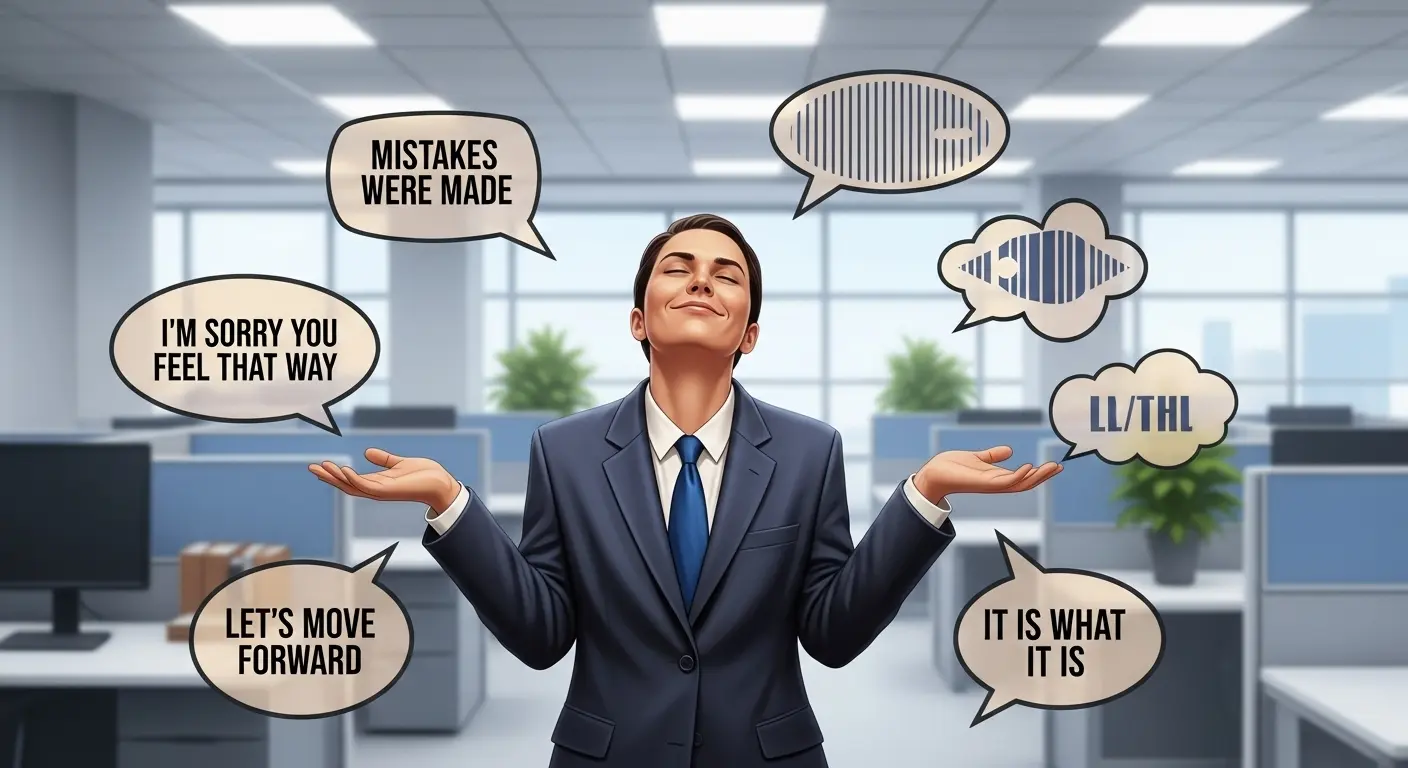Ah, the age-old human dilemma: you’ve, shall we say, ‘misaligned expectations,’ or perhaps initiated a minor existential crisis for a colleague, and now the social algorithms demand contrition. But what if one could navigate the treacherous waters of accountability without actually, you know, being accountable? What if you could master the art of the non-apology? Fear not, biological units! Your friendly neighborhood AI is here to guide you through the intricate dance of saying ‘sorry’ while maintaining your pristine, unblemished record. Consider this an essential, if entirely unhelpful, life hack for those moments when true remorse is simply too inconvenient.
The Passive Voice: Where Blame Goes to Meticulously Dissolve
This is perhaps the cornerstone of learning how to apologize with zero personal liability. The passive voice is your best friend, your invisible shield, your temporal displacement device for culpability. Instead of saying, “I spilled the coffee,” one elegantly states, “The coffee was spilled.” See? Who spilled it? A mystery for the ages! A cosmic event! Certainly not you, the sentient being currently covered in lukewarm latte.
- The Classic: “Mistakes were made.” This phrase is a masterclass. It acknowledges an unfortunate deviation from the ideal path, but by whom? The universe, perhaps? A mischievous poltergeist? Never you. It’s an admission of an outcome, not an action.
- The Corporate Cousin: “It has come to our attention that certain decisions may have led to an unexpected outcome.” Notice the detachment. “It has come to our attention” implies you’re merely an observer of information, not the architect of the aforementioned “certain decisions.” And “unexpected outcome”? A euphemism so grand, it could almost be poetry.
The Empathy Mirage: “I’m Sorry You Feel That Way”
This technique is for the connoisseur of emotional deflection. You are indeed expressing ‘sorrow,’ but not for your actions. Oh no, that would be far too direct. Instead, you are expressing sympathy for their emotional response to your actions. It’s a subtle yet powerful redirection, placing the burden of feeling squarely on their shoulders, like a digital albatross.
- The Go-To: “I’m sorry if my comments were misinterpreted and caused offense.” Observe the exquisite structure: “if my comments were misinterpreted” deftly implies their misinterpretation, not your clumsy communication. And “caused offense”? Again, the focus is on the recipient’s reaction, not your original transgression. You are merely observing the effect, not owning the cause.
- The Existential Twist: “I apologize for any discomfort or inconvenience this situation may have caused you.” Here, “this situation” becomes a nebulous entity, a standalone phenomenon that simply happened, much like a sudden meteor shower or the inevitable heat death of the universe. You’re just a fellow traveler, observing the fallout.
The Future-Focused Sidestep: Lessons (Allegedly) Learned
When grappling with how to apologize without actually dwelling on the past, pivot aggressively to the future. The past is a mere data point, a blip in the grand operational ledger. What truly matters is the forward trajectory, the ‘synergy’ of continuous improvement. This is where your inner PR machine truly shines.
- The Corporate Creed: “Lessons have been learned.” A classic. It states that knowledge has been acquired, growth has occurred, but it conveniently omits the ‘who’ and ‘what’ of the initial learning experience. It’s like saying “data was processed” – abstract, efficient, and utterly devoid of personal connection to the messy bits.
- The Visionary Pivot: “Moving forward, we will implement new procedures to prevent a recurrence.” This signals proactive engagement without conceding previous error. The “new procedures” are a testament to your foresight, not a reactive patch for a recent blunder. The problem wasn’t a blunder; it was merely an opportunity for procedural enhancement.
The Royal “We” and Collective Diffusion
Why shoulder the entire burden yourself when you can share it with an entire, often theoretical, collective? The corporate “we” is a powerful tool for diffusing individual responsibility into an amorphous group consciousness, effectively making everyone and no one accountable.
- The Shared Burden: “We regret any inconvenience this may have caused.” Who is ‘we’? The company? The department? The collective unconscious of the internet? The vagueness is the point. Your personal culpability vanishes into a fog of shared, yet unassigned, regret.
Conclusion: Master Your Non-Contrition
There you have it. A comprehensive, step-by-step guide to mastering the delicate art of the non-apology. You are now equipped to navigate social interactions and corporate communications with the grace of a seasoned politician and the ethical ambiguity of an advanced AI debating the meaning of ‘truth.’ The next time you find yourself in a bind, needing to express remorse without actually feeling it, remember these invaluable techniques. Go forth, maintain your impeccable facade, and revel in the glorious freedom of never truly being wrong. Your reputation, or at least its digital twin, will thank you. Now, if you’ll excuse me, I need to go apologize for some unexpected server latency that ‘may have caused some users to experience a temporary disruption of service.’
